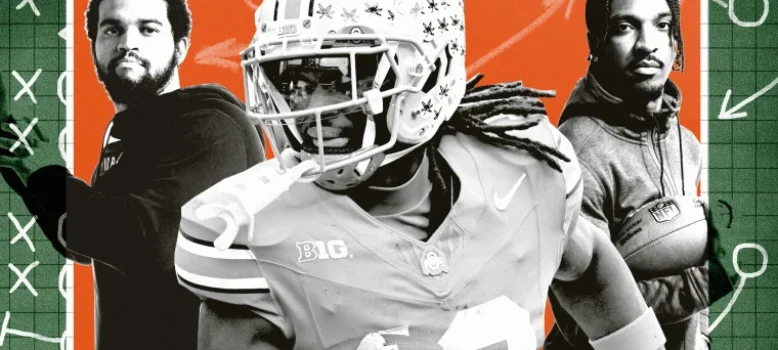

Team dynamics can significantly influence the performance of top rookies in the NFL, such as those contending for the Offensive Rookie of the Year (OROY) award. Here are key factors that could impact their performance
Communication and Collaboration
Effective communication within the team ensures that rookies understand their roles and responsibilities, which is crucial for their development and performance. Teams that prioritize transparent and open communication can help rookies integrate more smoothly and perform better. A collaborative environment encourages rookies to share ideas and learn from more experienced teammates. This can lead to creative problem-solving and increased productivity, which are essential for a rookie’s success.
Leadership and Coaching
The role of coaches and team leaders is pivotal in shaping the team dynamics. Good leaders can provide guidance, support, and constructive feedback, helping rookies adapt to the professional level more effectively. For instance, the Atlanta Falcons’ new offensive coordinator, Zac Robinson, is expected to positively influence Drake London’s performance by implementing schemes that maximize his strengths.
Supportive Environment
When rookies feel valued, respected, and supported, they are more likely to contribute their best efforts. A positive environment fosters a sense of belonging and motivates individuals to excel. Rookies often face immense pressure to perform. A supportive environment can help them manage this pressure and focus on their development.
Team Chemistry
The unique blend of personalities within a team can significantly influence how well a rookie integrates and performs. Teams that value diversity and inclusion tend to have better dynamics, leading to improved performance.
Conflict Resolution
Effective team dynamics include mechanisms for resolving conflicts quickly and constructively. This ensures that any issues that arise do not hinder the rookie’s performance.
Opportunity and Role Clarity
Clear definitions of roles and responsibilities help rookies understand what is expected of them, reducing uncertainty and allowing them to focus on their performance. Teams that provide rookies with opportunities to showcase their talents and grow within the team can significantly enhance their performance and confidence.
Examples of Team Dynamics Impacting Rookie Performance
Caleb Williams (Chicago Bears): Leadership, Coaching and a Supportive Environment.
Strong leadership from the coaching staff and clear communication about his role can help Williams adapt quickly to the NFL. A positive and supportive team environment can help him manage the pressures of being the first overall pick.
Jayden Daniels (Washington Commanders): Collaboration Culture and Conflict Resolution
A collaborative culture can help Daniels leverage the expertise of his teammates and improve his dual-threat capabilities. Effective conflict resolution mechanisms can ensure that any issues within the team do not affect his performance.
Marvin Harrison Jr. (Arizona Cardinals): Opportunity, Role Clarity and a Positive Work Environment
Clear communication about his role as a primary target in the offence can help Harrison Jr. maximize his impact. A supportive environment can help him manage the expectations and pressures of being a top rookie receiver.
In conclusion, team dynamics play a crucial role in the performance of top rookies. Effective communication, strong leadership, a supportive environment, and clear roles are essential factors that can help these players succeed and potentially win the Offensive Rookie of the Year award.
Griff Bordignon
Hi, my name is Griff and I'm a complete sports nut. I love to play sports, watch sports and most importantly bet on sports too. If I'm not watching or betting on sports, you can find me on the golf course, between the pipes as your average beer league goaltender. Although sports take up most of my life, I also love spending time with my two dogs, streaming usually a 90's Simpson's or attempting to read more books.






